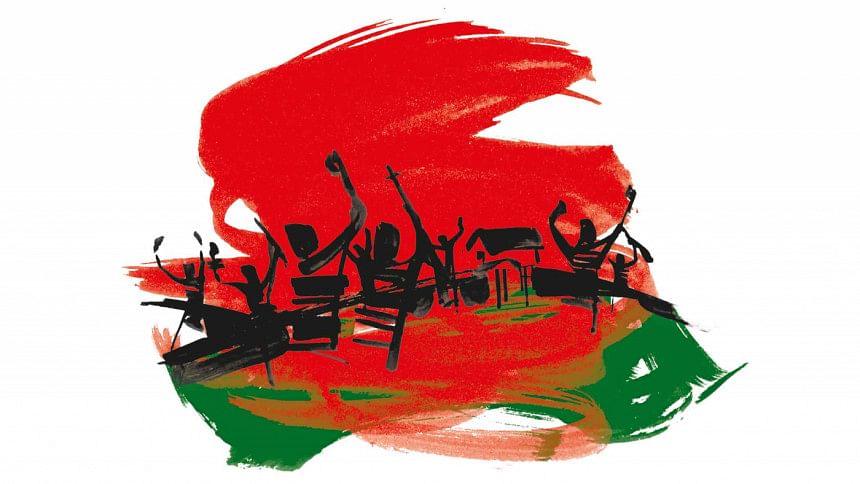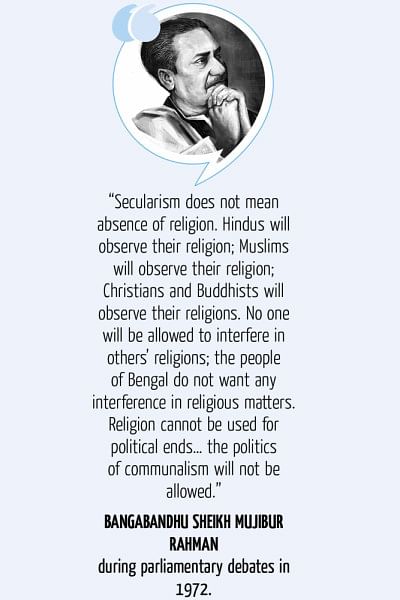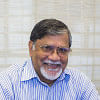Secularism in Bangladesh: The troubled biography of a constitutional pillar

The ubiquity of the word "secularism" (it is mentioned in more than 75 of the world's constitutions as an ideal the State promotes, or an organising principle that it affirms), and the passionate discussions it generates throughout the world, sometimes distracts us from the fact that its origins are relatively recent.
It was only after the Age of Reason and the Enlightenment in the 17th and 18th centuries; after the bloody inter-denominational conflicts in Europe, or the clashes between ecclesiastical and temporal authorities, which eventually led to the sovereignty of the State (occurring between the Treaty of Westphalia in 1648 and the Congress of Vienna in 1815); after Jefferson's famous "wall of separation between Church and State", and Voltaire's "privatisation of religion" found a welcoming environment in the American and French revolutions in the late 18th century, did the idea of secularism become well entrenched in European literary and political consciousness. The English writer George Holyoake was the first to use it in a systematic manner only in 1851. It was during the French Third Republic (1870-1940) that it was declared to be the "defining ideology of the State".
Not only is it a relatively new concept, it was also delimited by geography. It was essentially a European phenomenon, both in terms of the intellectual tradition that generated it, and the military conflicts that necessitated it. Hence for the rest of the world, which did not share that reality, it was a foreign concept where its relevance was dimly understood, its meaning fuzzy, its embrace clumsy.
It may be argued that the idea of "democracy" is similarly alien. But democracy was easier to explain, it animated the anti-colonial struggles, and it was reflected in some concrete practices and institutions that were identifiable and populist. Secularism was not. But, more importantly, while democracy did not challenge deeply held commitments and values, secularism problematised the core of their belief systems, and sometimes even their identity. It should be pointed out, as Karen Armstrong has done, that the notion of "religion" understood in the West, is subtly but substantially different from what the Arabic word "deen" or the South Asian word "dharma" connotes.
It was expected that the road to secularism would be rocky in South Asia, perhaps more so in Bangladesh. There were pre-existing tensions between Hindus and Muslims (mitigated to some extent by Sufi teachings, some syncretistic cultural practices, and the moral economy of the peasantry) which were aggravated by the Permanent Settlement Act of 1793 that conflated class and religion and sharpened earlier divisions. There were the machinations, and sometimes the confusions, of the British. There was the emergence of a middle class in both communities (a little later, and weaker, for the Muslims) which led to a competition for political power and economic favour from the British, and provoked the self-conscious exploitation of religion, the creation of the dreadful "other", and the divergence of the faith communities. And finally, there was the Partition of India in 1947 which appeared to confirm the primacy of faith as the very basis of personal and national identity.
Nonetheless, its journey in independent Bangladesh began in some optimism and apparent clarity. The constitution of 1972 unambiguously accepted secularism as one of the four foundational pillars of the State. This was entirely expected. This followed the logic of linguistic/cultural nationalism that had challenged the earlier Pakistani formulation, as well as the defeat of the Pakistani military which had pursued an overtly religious agenda. They lost. While the other pillars, such as democracy and socialism, were going to entail further negotiations and struggles, this issue, it was felt, had been settled. That confidence was seemingly misplaced.
Secularism was not killed with Bangabandhu's brutal assassination in 1975, but it was dealt a crippling blow. The subsequent leadership did not pursue this ideal with the courage, commitment or the charismatic authority that he had represented. Religious groups and leaders, who had remained defensive and tentative initially, were allowed and, at times invited, into the political arena, gradually began to assert their presence, eventually emerged as critical players in bargaining-based and alliance- oriented "democratic" arrangements, and steadily pushed back against earlier secular guarantees. Even its location in the constitution became far less settled than had been originally assumed.
In fact, the 5th amendment (1979) removed secularism from the constitution, and the Divine invocation (Bismillah-Ar-Rahman Ar-Rahim) was inserted at the beginning. By the 8th amendment (1988), Islam was declared the "State religion". In 2005, the Supreme Court invalidated the 5th amendment (not on the religious question per se, but on the unconstitutionality of the Martial Law that had been promulgated and hence all laws, acts and amendments passed at the time were deemed to have been automatically nullified). In 2011, Part II, Article 8 of the 15th amendment restored secularism as a fundamental principle of State policy, and Article 12, Part II specifically indicated the elimination of communalism, the non-privileging of any religion, or any discrimination based on faith. However, in Article 2A, Part I, Islam was retained as the State religion, and the invocation remained unchanged. Thus, the constitutional position of secularism became a bit murky.
The increasing influence of the religionists was reflected in other areas as well. First, in education, Prof Abul Barkat reported that between 1970 and 2008, the number of alia madrasas increased from 2,721 to 14,152, and the number of qawmi madrasas went up correspondingly. By 2015, the government indicated the existence of 13,902 qawmi madrasas (though, largely because of definitional imprecisions, some estimates could be several times higher).

Moreover, in 2017, the qawmi madrasas, which had always resisted any government interference in terms of academic substance, quality or control, was able to get its Dawrah degree recognised as equivalent to an official MA degree.
These forces, spearheaded by Hefazat-i-Islam, were also able to influence the curricula of the official education system. In 2017, as many as nine chapters were quietly deleted from school textbooks (which included contributions from Lalon, Sunil Gangopadhyay, Sarat Chandra, Satyen Sen, Humayun Azad and Rabindranath Tagore) and substituted them with more religious-minded pieces (from Shah Ahmad Sagir, Alaol, Golam Mostafa, Kazi Nazrul Islam and Habibullah Bahar). Similar other texts were added. Further changes were demanded and remain under consideration.
Second, such groups, and others emboldened by them, carried out various acts of repression and violence against religious minorities. Odhikar (a Human Rights based organisation), reported that between 2007 and 2019, 12 people belonging to minority faith communities were killed, 1,536 injured, seven abducted and 19 raped, while 62 pieces of land and 40 houses were grabbed, 1,013 properties and 390 temples were attacked, and 889 idols damaged or destroyed. It should be pointed out that the victims were mostly Hindus, but also included Christians, Buddhists, and Shia and Ahmadiyya adherents. Minority organisations report numbers that are understandably higher.
A large number of minorities have felt compelled to leave the country. According to the official census reports published by the government, in the 1951 census (i.e., after the early exodus forced by the Partition), Hindus were 22 percent of the population of East Pakistan. By 1961 it had come down to 18.5 percent, by 1971 to 13.5 percent, by 1991 to 10.5 percent and by 2011 to 8.5 percent. Some of this may be partly explained by economic and family factors, but it would be quite implausible to deny that the atmosphere of threat and vulnerability they faced did not contribute to this migration.
Third, these groups have also been successful in creating an intimidating environment that has caused a "chilling effect" on free speech. They have assassinated secular and atheist writers and bloggers, attacked teachers and editors, and threatened artists and performers on the pretext that their religious sentiments and sensibilities had been hurt or offended. Even the suspicion or accusation that someone had done so may lead a Hindu principal of a school to be forced to do sit-ups in front of an entire assembly of students and citizens, or a person being burned to death.
The Digital Security Act vastly expanded the arsenal of weapons available to the politically or religiously hyper-sensitive. With its sweeping generalities and lack of clarity about the meaning of "religious sentiments" or what constitutes being "hurt" or "offended", legal harassment was added to public humiliation and physical attacks as a relatively safe and seductive tool in the service of intellectual and religious intolerance.
It must be pointed out that the most serious and worrisome challenges to our democracy do not come from wild-eyed, bomb-throwing fanatics who can attack a cultural programme celebrating the Bengali New Year's Day and kill 10 people (April 14, 2001), cause more than 400 simultaneous explosions in 63 out of 64 districts in Bangladesh (August 17, 2005), or slaughter 28 people, including 17 foreigners in an upscale Dhaka restaurant (July 1, 2016). These are dramatic and dangerous manifestations of Jihadi militancy. But, they can be, and have been, largely contained. The much greater threat, more insidious and more far-reaching in its consequences, is the creeping advance of religionists in the country through a process that has been deliberate, organised and strategic.
It must be emphasised that there is a distinction between the concepts of being "religious" and becoming a "religionist". The first refers to a commitment to personal piety, rigorous practice and spiritual salvation, the second indicates an interest in attaining political power, dictating government policy and dominating the public discourse. The first is perfectly compatible with secularism, can embrace modernity and scientific progress, and peacefully co-exist with other faiths and persuasions. The second is skeptical of science, judgmental about other faiths, and ready to retaliate against any questions about their own. Secularism is integral to, and a precondition for, democracy, while religionist absolutism is a threat.
This does not mean that secularism automatically ensures democracy. History is replete with examples of very secular authorities being cruelly illiberal and authoritarian. This only refers to the fact that unless there is tolerance for other ideas, respect for other faiths, acceptance of questions and criticisms, openness to science and evidence-based enquiry, trust of the will of the people (and not merely the assertions of dogmatic clerics) to make right decisions and judgments, and a strict separation between the private sphere of individual faith and the public space for civic engagement—unless these "secular" values and practices are upheld, democracy cannot be sustained.
The secularist argument, hence democracy itself, has been under considerable stress. The anxieties and uncertainties created by technology and global dislocations, the increasing inequalities everywhere, world-wide conflict particularly the instabilities in the Middle East (and the feeling that Islam is under siege), and the corruptions and inefficiencies in so many countries, have all contributed to a widespread skepticism about the West, a hostility to its traditions and examples, and a turning inward among Muslims.
Reinforcing this anti-secular backlash here has been India's unfair and selfish pursuit of its interest (in relation to Bangladesh), and the increasing bigotry and viciousness it has displayed against Muslims. Moreover, financial patronage and Salafi indoctrination flowing in from Arab countries provided support and direction to the religionists. Finally, the stereotypical dismissal of religious people as backward, misogynist, violent, one-dimensional and unpatriotic has been arrogant, counter-productive and polarising. Instead of helping the cause of secularism and democracy, it has only strengthened its enemies.
But, more importantly, the leaders of supposedly secular parties in Bangladesh have probably been complicit in creating this Frankenstein. It is not a question of apportioning blame, as the parties are now childishly doing. Almost all parties had probably tended to this poisonous plant (perhaps some more readily than others), and helped it to flourish through compromise and accommodation.
It may be argued that compromise is part of the democratic process, and hence should be supported. But compromising what, and with whom, is relevant. This was the fatal fallacy of the (in)famous policies of "appeasement" pursued by the Allied powers in dealing with Hitler. Throughout the 1930s he consistently violated the terms of the Treaty of Versailles—building his armed forces, remilitarising the Rhineland, stopping reparation payments, reuniting with Austria through the Anschluss, and finally claiming the Sudetanland (at that time a province of Czechoslovakia). The Allied Powers, desperate to "secure peace for our time" once again, gave in. Hitler not only occupied the province, but the entire country. And then he demanded Poland, and invaded it in 1939. World War II, preventable earlier, became inevitable.
"Appeasement" was destined to fail. To a bully, a compromise is a capitulation. It does not make the problem disappear, it only encourages the next demand. The religionists kept on steadily advancing their agenda (affecting the constitution, education, public policy, free speech, etc). The parties in power did not confront them. In this sense, our "Sudetanland moment" was perhaps the removal of the Lady Justice statue from the High Court premises. That crucial "victory" may have paved the way for the unimaginable and unforgiveable audacity of the religionists in defacing Bangabandhu's sculpture in Kushtia, and demanding that none others be built.
If we care for Bangabandhu, the spirit of our Liberation War, our obligation to our own constitutional principles, and our commitment to democracy, we must be bold, decisive and resolute to protect secularism in order to consolidate democracy. A Faustian bargain with the religionists may provide political gains that are illusory and temporary, but moral losses that are substantive and permanent. To paraphrase Benjamin Franklin, those who forsake their constitution for the sake of power, deserve neither.
Dr. Ahrar Ahmad is Professor Emeritus at Black Hills State University, USA.

 For all latest news, follow The Daily Star's Google News channel.
For all latest news, follow The Daily Star's Google News channel. 



Comments